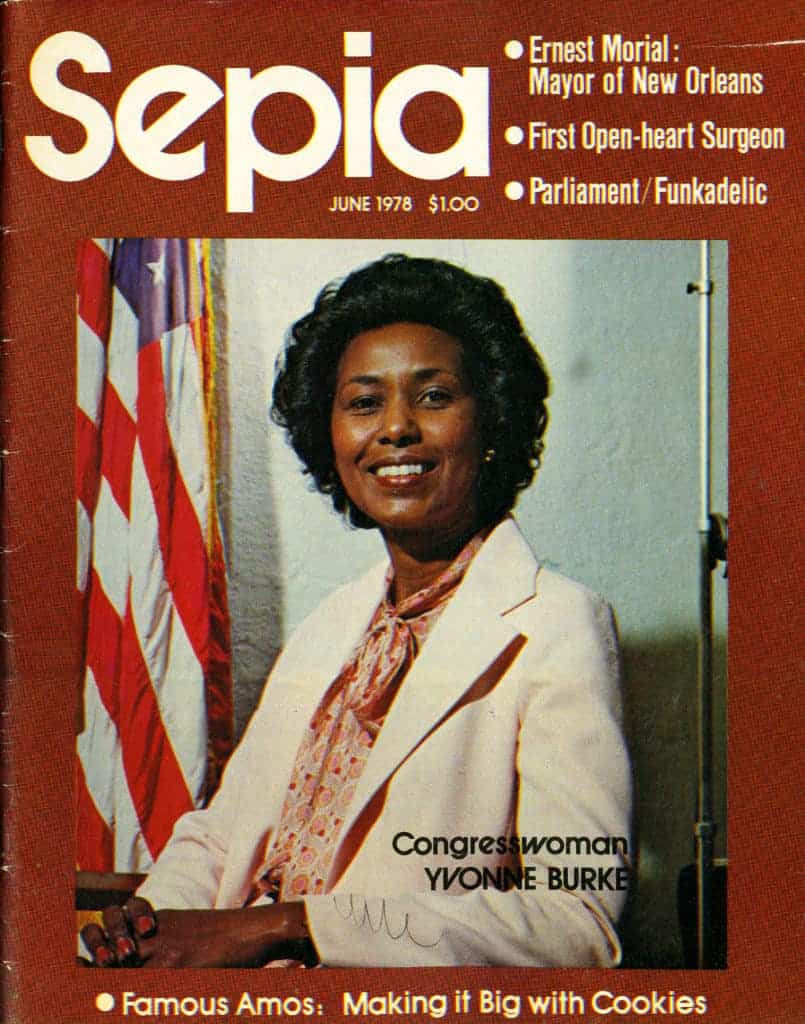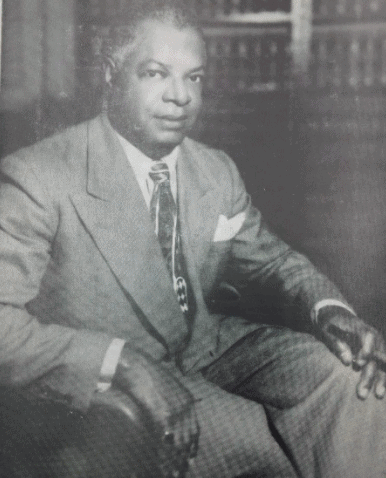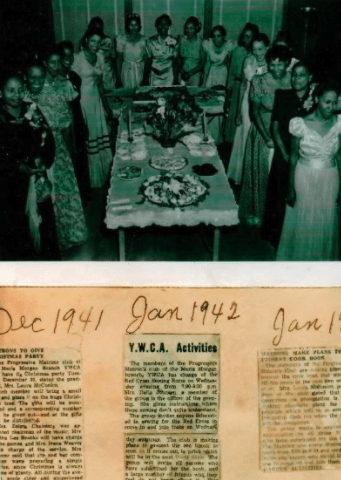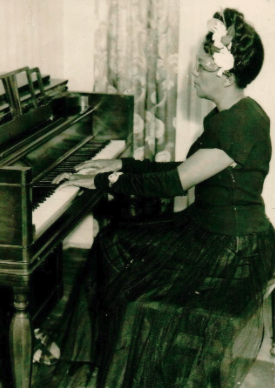COLLECTIONS
Since its founding in 1974 at Bishop College as the Southwest Research Center and Museum for the Study of African-American Life and Culture, the African American Museum has collected documents, artifacts, publications, and a plethora of resources that document, preserve and tell the story of the African and African American experience. Currently, the African American Museum houses over sixty archival collections, over 200 African artifacts, and over 150 paintings and sculptures.

Sepia Magazine Photographic Archive
Sepia magazine began in Fort Worth, Texas in 1947 as Negro Achievements, a magazine highlighting African American success articles and featuring reader-submitted true confessions stories. In 1951, two years after the death of its black founder, Horace J. Blackwell, white businessman George Levitan bought Sepia and under his guidance, the magazine became the longest standing competitor to the more successful African American magazine, Ebony.
Scope and Content: The Sepia Photographic Archive is one of the most valuable resources of Black achievement and is a precious source of American culture and history. It is an archive of over 20,000 photographs and it is one of the most important collections of artistic and historical photography ever amassed documenting Black life in America and abroad.
African American Education Archives and History Program Collection
Since 2002, the AAEAHP has collected oral histories and the archival records of 156 educators and significant individuals in Dallas County, Texas. The AAEAHP Collection includes the Dallas County African-American Educators Oral History Archives and Hall of Fame. In addition to oral history audiotapes, videos and transcripts, the Collection consists of photographs, newspaper clippings, personal papers, funeral programs, and artifacts from the schools named for Dallas African-American leaders and educators. As noted above, the Collection is housed at the Dallas African American Museum.


Antonio Maceo Smith Collection
Antonio Maceo Smith was born in 1903 in Texarkana, Texas. In the early part of his life, he received an AB Degree from Fisk University and a MBA Degree from New York University. While in New York, Smith did some postgraduate studies at Columbia University and he worked with an advertising company. Smith later ventured into real estate in Texarkana. In 1933, he became the first executive secretary of the Dallas Negro Chamber of Commerce and transitioned to becoming a teacher in the Dallas Independent School District. Smith worked with the National Association for the Advancement of Colored People (NAACP) on notable cases such as Smith v. Allwright (1944), the white primary case, and Sweatt v. Painter (1950) the case to desegregate the University of Texas Law School. Smith also served as National President of Alpha Phi Alpha Fraternity and as founder of the Texas Negro Chamber of Commerce, amongst numerous other accomplishments. Smith passed away in 1977, and posthumously, the Dallas Independent School District honored him by naming a school after him in 1978.
Scope and Content: Antonio Maceo Smith’s widow, Mrs. Fannie Smith donated the A. Maceo Smith Collection to the African American Museum in the early 1990s. It contains three boxes of materials related to Mr. Smith’s extraordinary career as a leader of the National Association for the Advancement Colored People (NAACP), Alpha Phi Alpha Fraternity, the Dallas Negro Chamber of Commerce (DNCC), the Dallas Urban League, as well as a number of organizations in Dallas, the state of Texas and nationally. It also includes materials related to Mr. Smith’s activities as a businessman and community leader in Dallas, Texas. The collection covers approximately the years from 1933, when Mr. Smith came to Dallas from Oklahoma to lead the DNCC, to his death in 1977.
Maria Morgan YWCA Collection
The Church Women United in Dallas (“CWU”) was organized in 1912 by Maria Morgan Smith, who served as president for ten years. During the 1920s, the organization adopted the Homemakers Industrial School located at State Street and Washington Avenue as a project. The school trained African-American girls in homemaking skills and the boys how to make a living. The school was deeded to the YWCA in 1927, and eventually became the Maria Morgan Branch of the YWCA in 1939.
Scope and Content: This collection consists of four boxes that contain documents, newspaper clippings, and photographs that primarily document the activities and programs of the Maria Morgan Branch Young Women’s Christian Association (“YWCA”) and information relevant to the organization’s progress from the 1930s to the 1980s.


Mrs. Maurine F. Bailey Collection
Mrs. Maurine F. Bailey (1901-2000) was born Maureen Frances Washington in Atlanta, Texas. She attended Bishop College in Marshall, Texas where she earned a Bachelor’s degree in Music Education. She also earned graduate credit in Music Education at the University of Colorado, Northwestern University, and Southern Methodist University. One of the highlights of her formal education was that she studied with Fred Waring, one of the leading choral conductors in the United States.
Scope and Content: The Maurine F. Bailey Collection consists of two boxes of documents, photographs, and publications that highlight Mrs. Bailey’s public life as a teacher, concert choir conductor, and family member. The collection also contains the books and lesson plans that Mrs. Bailey used in her classes at Lincoln High School and to lead the Harry T. Burleigh Concert Choir. The items in the collection range from the mid-1940s to the 1980s.
Processed Archival Collections at the African American Museum
The African American Museum has also collected a plethora of artifacts, oral histories, and documents related to the African-American experience in Texas and the Southwestern United States. The Museum’s collections include folk art, African masks and artifacts, the personal papers and books of Dr. Yvonne Ewell, the Bishop College Collection, the Black Baptist Archives, and other smaller collections that highlight the history and culture of African Americans in the North Texas area.
Dr. Alfred Roberts Collection
Trinity Links Collection
Plano Links Collection
A. Maceo Smith Collection
Maria Morgan YWCA Collection
Maurine F. Bailey Collection
Eva Jessye Collection
Sepia Magazine Photograph Archive
Bishop College Theses (inventory)
Great Fire of Dallas 1860 Collection
Circle-Lets, Inc Collection
Juanita Craft Civil Rights House Collection
AAEAHP General Records and Hall of Fame Collection
African American Museum Miscellaneous Items
Dr. Yvonne A. Ewell Collection
Dallas Express Newspaper Collection
George Allen Collection
Dallas Regional National Association of Black School Educators Collection
African American Newspaper Collection
Theodore C. Calhoun and Texas State Teachers Association Collection
